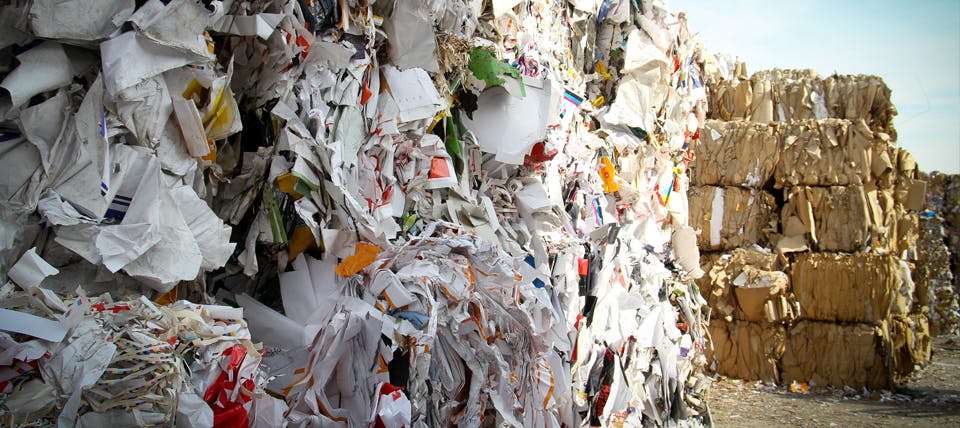Beige Gold – The Global Shortage of Cardboard

For many weeks now, the packaging press – and even major news outlets such as the BBC, The Telegraph and The Daily Mail – has been carrying articles with disturbing headlines about a national shortage of cardboard.
The first few months of 2021 have seen many companies struggling to find corrugated packaging. Even when they can source their boxes, businesses may be faced with unworkable lead times and significant price increases. Some large retailers have had to switch to alternative packaging materials, and delivery firms have warned of damaged parcels, increased costs and delays to home deliveries. Cardboard packaging has become so scarce it is now being referred to as ‘beige gold’.
For some businesses, shortages and delays will mean upsetting customers. For others, faced with the accumulated difficulties of the pandemic, being unable to get their products to market on time will summon their final death knell.
So why the shortage?
Changing shopping habits
According to the Confederation of Paper Industries (CPI), packaging companies have been hit with a cardboard shortage primarily due to a combination of lockdown and Brexit. The previously steady growth of online retail at the expense of bricks and mortar shopping has soared with the coronavirus lockdown. Royal Mail, for example, estimates that there were around 200 million extra parcels sent through their own and other courier networks in 2020. The CPI says demand for cardboard boxes from online retailers is five years ahead of where it had expected it to be before the pandemic.
Business changes
The pandemic has affected demand in other ways too. Businesses which could no longer open their doors to customers turned to the Internet. Food box subscription services and takeaways all require packaging which is not needed for in-house service. Even the increase in home baking and egg consumption as a result of lockdown played a part.
Paper supply
Some of Europe’s largest paper mills suffered significant downtime due to staffing issues created by COVID-19. The knock-on effect was paper stocks running at very low levels at exactly the same time that UK corrugated demand began to rise. All this played havoc with normal lead times from sheet board suppliers. Inevitably the imbalance between demand and supply has also led to paper price increases – 40% since the New Year, with more expected. Manufacturers have no choice but to pass at least some of this on to customers.
Brexit played a part too, with problems transporting material to make corrugated boxes across the Channel, as a result of the “chaos” at the ports caused by pre-deadline stockpiling and the usual fourth quarter rush, combined with the increased paperwork.
Recycling
One of the many attractions of corrugated cardboard as a packaging material is its recyclability. It contains up to 80% recycled material and can be recycled up to seven times before the paper fibres are depleted. But during lockdown there have been delays in getting waste corrugated cardboard back into the recycling chain. Offices, bars and restaurants, usually among the largest – and quickest – sources of recycling waste, have been closed for long periods. Collections of household recycling have been hampered by staff shortages, the Christmas break and an increase in waste overall. Recycling plants themselves have been hit by COVID cases and social distancing rules. On top of all this, packaging has been stockpiled in warehouses because of Brexit.
Taking all these factors together, a shortage of cardboard was inevitable.
The future
The CPI says Brexit delays are expected to drop away as new arrangements settle down, while mill maintenance schedules will return to normal as lockdowns end.
But consumer buying behaviour, specifically the increase in online retail, might well have changed forever, and the packaging industry will have to adapt to increased demand. Clearly, packaging manufacturers will have to do things differently.
Although the shortage of cardboard is a challenge, it has also provided an opportunity. Rethinking packaging design and good planning can minimise the use of materials, which can only be beneficial to the sustainability of both the packaging industry and our planet.
John Weedon, Managing Director of the Weedon Group, comments:
“By investing in paper stock, and looking carefully at how we can help our customers to adjust their designs, we are helping them to accommodate both the shortage of cardboard and the rise in paper prices.
“In the Weedon Group, we have always been innovative in our design and the use of materials. For example, we recently steered our customer Mirius, the global hygiene solutions company, into greener packaging with reduced volume, by changing the lids of their boxes from B-flute to L-flute. And we recommended that Selfridges substitute test paper instead of Kraft board (made from virgin fibres) for their range of eCommerce boxes, to offset price rises and to be more environmentally-friendly. (With our in-house testing laboratory, we can test our designs and demonstrate that lighter or cheaper boards will still provide sufficient protection before we begin bulk production.)
“While some corrugated cardboard packaging manufacturers have simply prioritised high volume jobs, we have put our longstanding customers first. As a general rule, we are not taking on new business, if it would mean we would have to leave our existing customers high and dry! Together we will get through this.”

Weedon Group plant based packaging and displays